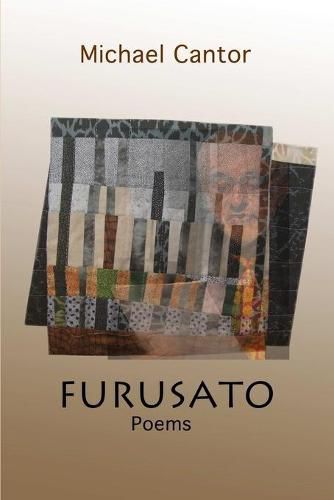Readings Newsletter
Become a Readings Member to make your shopping experience even easier.
Sign in or sign up for free!
You’re not far away from qualifying for FREE standard shipping within Australia
You’ve qualified for FREE standard shipping within Australia
The cart is loading…






If Michael Cantor’s Furusato (Japanese for Home Town ) were only a dazzling display of formal verse at its most polished and expert, that in itself would make it worth owning and reading many times over. Its triolets, Asian forms, sestinas and experimental hybrids are as aesthetically satisfying as they are daring. But these poems are so much more that the reader ends by taking their miraculous skill for granted and focusing entirely on the dry, almost cruel humor with which they convey what home means, and how experience lived in our various homes shapes us, and then go on to create characters and narratives impossible to forget. The collection ends with a handful of masterpieces- On Rolfe’s Lane,
Lament,
The Historian, and Clever, among many others earlier in the book-that outdo and outweigh the craftsmanship you will have forgotten to notice by then. -Rhina Espaillat
Michael Cantor’s poems in Furusato weave a mesmerizing story, a black-and-white film, that takes us to Japan, Manhattan, Santa Fe, and unnamed foreign cities, following a sometimes there, sometimes not urbane mystery man who is at home everywhere, and therefore nowhere. Furusato means where my people lived, the place/that we are from; my ancestors lie here, and Cantor explores this theme beautifully and hauntingly. He uses form, free verse, Japanese stanzas and his own invented forms masterfully to introduce characters looking for their own homes: Sushi Sue, Tina the pole dancer, Bernie Madoff, Russian spies, and a somewhat older Rick and Ilse, meeting one last time in Casablanca. And at last we are granted a glimpse into his own furusato-his youth in the Bronx and his emotional home on the fictional Plover Island. For all of us traveling through life, Cantor’s poems are a gift from a poet with the intelligence, wit, self-awareness, and insight to help us recognize our own furusato.
-Midge Goldberg
Michael Cantor’s second book, Furasato, delivers what his readers have come to expect: fresh narratives, formal invention, a passion for all things Japanese, and imaginative attention to the details of his worlds. Furasato manages to be both timely and timeless.-A.M. Juster
$9.00 standard shipping within Australia
FREE standard shipping within Australia for orders over $100.00
Express & International shipping calculated at checkout
If Michael Cantor’s Furusato (Japanese for Home Town ) were only a dazzling display of formal verse at its most polished and expert, that in itself would make it worth owning and reading many times over. Its triolets, Asian forms, sestinas and experimental hybrids are as aesthetically satisfying as they are daring. But these poems are so much more that the reader ends by taking their miraculous skill for granted and focusing entirely on the dry, almost cruel humor with which they convey what home means, and how experience lived in our various homes shapes us, and then go on to create characters and narratives impossible to forget. The collection ends with a handful of masterpieces- On Rolfe’s Lane,
Lament,
The Historian, and Clever, among many others earlier in the book-that outdo and outweigh the craftsmanship you will have forgotten to notice by then. -Rhina Espaillat
Michael Cantor’s poems in Furusato weave a mesmerizing story, a black-and-white film, that takes us to Japan, Manhattan, Santa Fe, and unnamed foreign cities, following a sometimes there, sometimes not urbane mystery man who is at home everywhere, and therefore nowhere. Furusato means where my people lived, the place/that we are from; my ancestors lie here, and Cantor explores this theme beautifully and hauntingly. He uses form, free verse, Japanese stanzas and his own invented forms masterfully to introduce characters looking for their own homes: Sushi Sue, Tina the pole dancer, Bernie Madoff, Russian spies, and a somewhat older Rick and Ilse, meeting one last time in Casablanca. And at last we are granted a glimpse into his own furusato-his youth in the Bronx and his emotional home on the fictional Plover Island. For all of us traveling through life, Cantor’s poems are a gift from a poet with the intelligence, wit, self-awareness, and insight to help us recognize our own furusato.
-Midge Goldberg
Michael Cantor’s second book, Furasato, delivers what his readers have come to expect: fresh narratives, formal invention, a passion for all things Japanese, and imaginative attention to the details of his worlds. Furasato manages to be both timely and timeless.-A.M. Juster